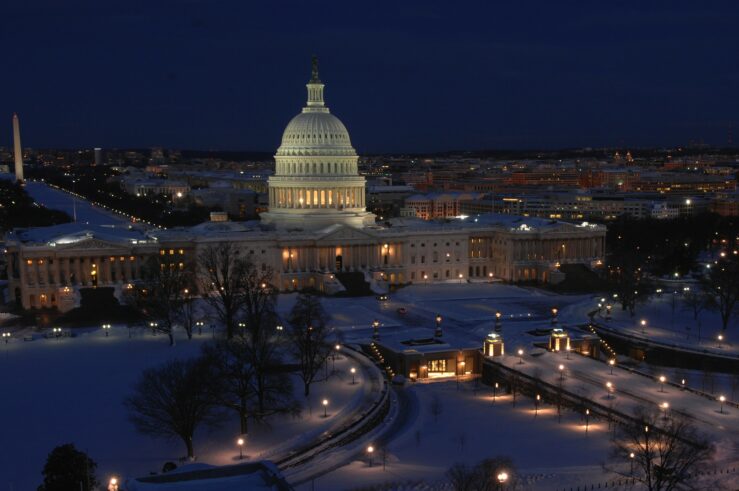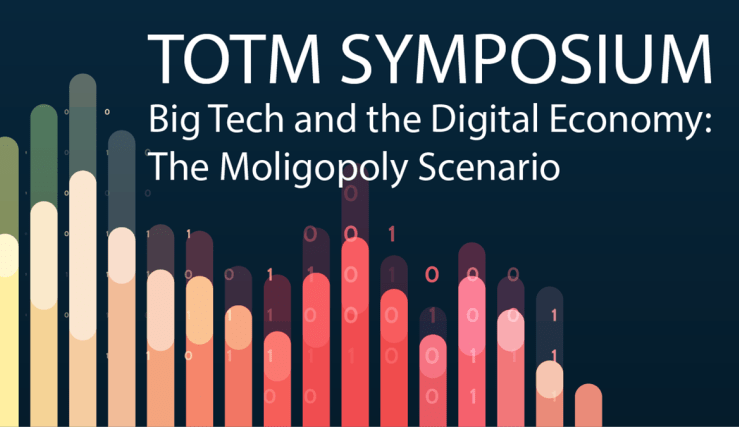Showing archive for: “Efficiencies”
FTC Moves Closer Toward Ex Ante Merger Regulation
The Federal Trade Commission (FTC) has taken another step away from case-specific evaluation of proposed mergers and toward an ex ante regulatory approach in its Oct. 25 “Statement of the Commission on Use of Prior Approval Provisions in Merger Orders.” Though not unexpected, this unfortunate initiative once again manifests the current FTC leadership’s disdain for ... FTC Moves Closer Toward Ex Ante Merger Regulation
Broad-Based FTC Data-Privacy and Security Rulemaking Would Flunk a Cost-Benefit Test
A debate has broken out among the four sitting members of the Federal Trade Commission (FTC) in connection with the recently submitted FTC Report to Congress on Privacy and Security. Chair Lina Khan argues that the commission “must explore using its rulemaking tools to codify baseline protections,” while Commissioner Rebecca Kelly Slaughter has urged the ... Broad-Based FTC Data-Privacy and Security Rulemaking Would Flunk a Cost-Benefit Test
Is There Any Market Power in Online Display Advertising?
A lawsuit filed by the State of Texas and nine other states in December 2020 alleges, among other things, that Google has engaged in anticompetitive conduct related to its online display-advertising business. Broadly, the Texas complaint (previously discussed in this TOTM symposium) alleges that Google possesses market power in ad-buying tools and in search, illustrated ... Is There Any Market Power in Online Display Advertising?
More Evidence that the Patent System Promotes Dynamic Competition and Consumer Welfare
The patent system is too often caricatured as involving the grant of “monopolies” that may be used to delay entry and retard competition in key sectors of the economy. The accumulation of allegedly “poor-quality” patents into thickets and portfolios held by “patent trolls” is said by critics to spawn excessive royalty-licensing demands and threatened “holdups” ... More Evidence that the Patent System Promotes Dynamic Competition and Consumer Welfare
Breaking Down the American Choice and Innovation Online Act
The American Choice and Innovation Online Act (previously called the Platform Anti-Monopoly Act), introduced earlier this summer by U.S. Rep. David Cicilline (D-R.I.), would significantly change the nature of digital platforms and, with them, the internet itself. Taken together, the bill’s provisions would turn platforms into passive intermediaries, undermining many of the features that make ... Breaking Down the American Choice and Innovation Online Act
Technology Mergers and the Market for Corporate Control
In recent years, a growing chorus of voices has argued that existing merger rules fail to apprehend competitively significant mergers, either because they fall below existing merger-filing thresholds or because they affect innovation in ways that are purportedly ignored. These fears are particularly acute in the pharmaceutical and tech industries, where several high-profile academic articles ... Technology Mergers and the Market for Corporate Control
FTC Antitrust Enforcement and the Rule of Law
The language of the federal antitrust laws is extremely general. Over more than a century, the federal courts have applied common-law techniques to construe this general language to provide guidance to the private sector as to what does or does not run afoul of the law. The interpretive process has been fraught with some uncertainty, ... FTC Antitrust Enforcement and the Rule of Law
Old Ideas and the New New Deal
Over the past decade and a half, virtually every branch of the federal government has taken steps to weaken the patent system. As reflected in President Joe Biden’s July 2021 executive order, these restraints on patent enforcement are now being coupled with antitrust policies that, in large part, adopt a “big is bad” approach in ... Old Ideas and the New New Deal
Congress Should Not Grant the FTC Untrammeled Authority to Obtain Monetary Relief
The U.S. House this week passed H.R. 2668, the Consumer Protection and Recovery Act (CPRA), which authorizes the Federal Trade Commission (FTC) to seek monetary relief in federal courts for injunctions brought under Section 13(b) of the Federal Trade Commission Act. Potential relief under the CPRA is comprehensive. It includes “restitution for losses, rescission or ... Congress Should Not Grant the FTC Untrammeled Authority to Obtain Monetary Relief
For Scotch Whisky, Age Is Just A Number
For a potential entrepreneur, just how much time it will take to compete, and the barrier to entry that time represents, will vary greatly depending on the market he or she wishes to enter. A would-be competitor to the likes of Subway, for example, might not find the time needed to open a sandwich shop ... For Scotch Whisky, Age Is Just A Number
Antitrust Statutorification
A lot of water has gone under the bridge since my book was published last year. To close this symposium, I thought I would discuss the new phase of antirust statutorification taking place before our eyes. In the United States, Congress is working on five antitrust bills that propose to subject platforms to stringent obligations, ... Antitrust Statutorification
A First Glance at the Biden Executive Order on Competition: The Good and the Bad (Including Much that Looks Ugly)
The Biden Administration’s July 9 Executive Order on Promoting Competition in the American Economy is very much a mixed bag—some positive aspects, but many negative ones. It will have some positive effects on economic welfare, to the extent it succeeds in lifting artificial barriers to competition that harm consumers and workers—such as allowing direct sales ... A First Glance at the Biden Executive Order on Competition: The Good and the Bad (Including Much that Looks Ugly)










